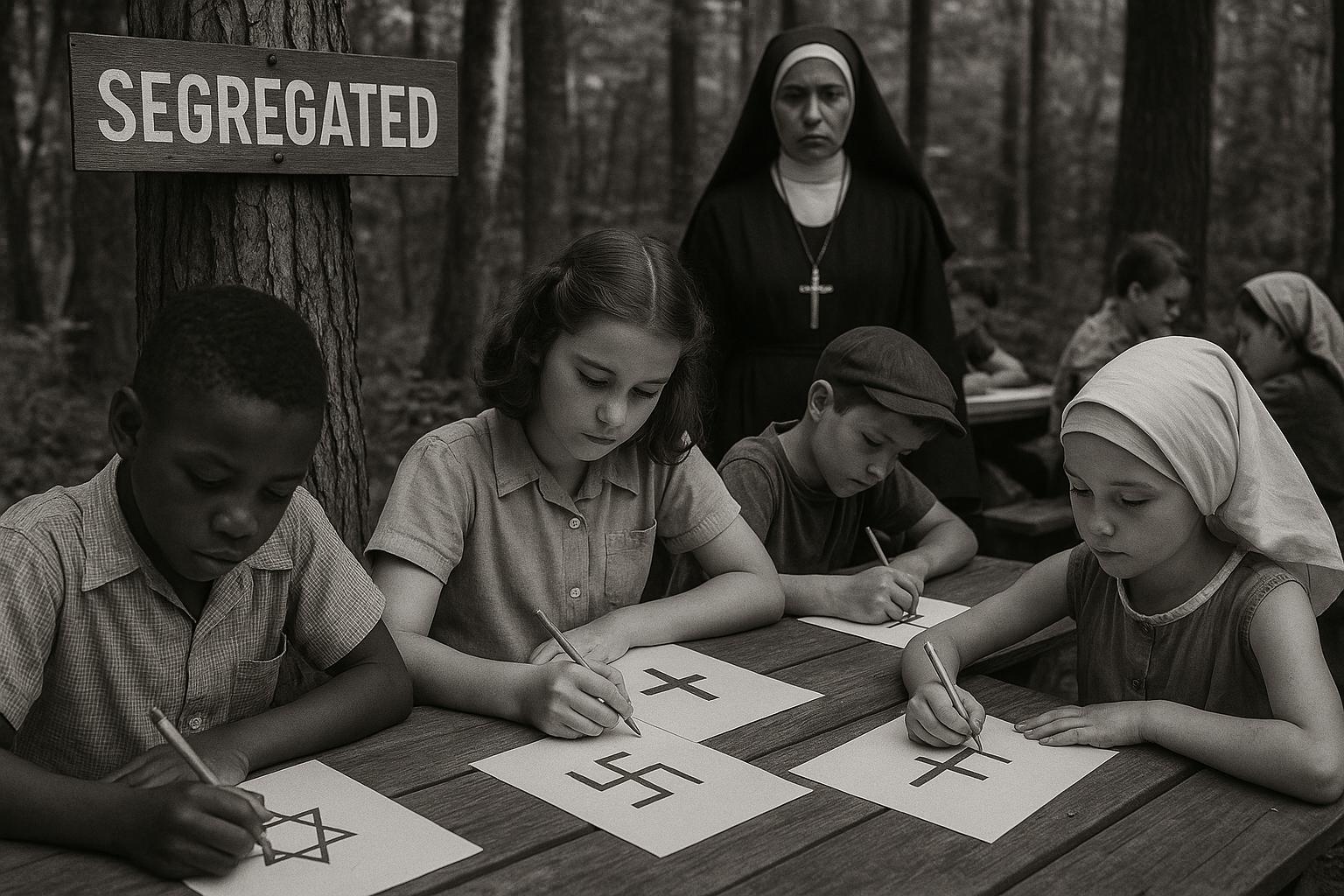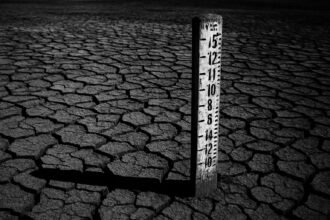Camp Wilayah, organised by the pro-Iran Ahlulbayt Islamic Mission and set for August 2025, faces sharp criticism for promoting extremist anti-Israel rhetoric to children aged 9 to 14, amid investigations and calls from UK politicians for tighter scrutiny of Iranian-linked groups.
A British summer camp organised by the Ahlulbayt Islamic Mission (AIM), a pro-Iranian Shia Muslim charity based in Cricklewood, London, has sparked significant controversy over allegations of radicalising children aged 9 to 14 with extremist anti-Israel rhetoric. Camp Wilayah, scheduled for August 2025 in Kings Langley, Hertfordshire, combines outdoor activities such as climbing and abseiling with lectures and discussions framed within Islamic values. The four-day camp, priced at £180, is marketed by AIM as “a unique opportunity to explore your true potential amidst the serenity of nature and an Islamic ambience.” However, concerns have been raised over the camp’s content, which reportedly includes activities where children draw Palestinian flags and watermelon symbols, the latter referencing Hamas’s October 7, 2023, attack on Israel—a deadly event that resulted in over 1,200 deaths and 251 hostages.
AIM enforces gender segregation at the camp, with girls required to wear hijabs and separated from boys except during prayers and lectures. These practices, alongside the political symbolism and rhetoric, have drawn sharp criticism from UK Lawyers for Israel (UKLFI), who accuse AIM of promoting the revolutionary Islamist ideology of Iran’s supreme leader, Ayatollah Khamenei. AIM’s social media reportedly glorifies Khamenei’s writings and justifies Hamas’s actions, placing blame on Israel for the conflict and employing anti-Semitic language, including a camp video titled “Know Thy Enemy,” which disparages Jews, labels Israel a “squatter state,” and dismisses moderate Muslims. UKLFI warns of an “unacceptable risk” to children given AIM’s ideological ties with the Iranian regime and their history of extremist propaganda.
Prominent figures have voiced their concerns with Lord Walney, a former UK extremism adviser, stating, “We cannot allow propaganda and influence from this theocratic dictatorship to be spread to children in the UK.” Shadow Justice Secretary Robert Jenrick, an outspoken defender of Israel, echoed this sentiment, insisting that “children should not be allowed to attend camps run by supporters of the Iranian regime.” Jenrick’s strong stance on security and extremism aligns with his recent public comments urging more decisive government action against Islamic terrorism and his criticism of media portrayals of Hamas.
The controversy comes amid heightened awareness of Iran’s threat to the UK, as emphasised in a recent UK parliamentary intelligence and security committee report. The report highlights Iran’s “persistent and unpredictable” threat, citing a spike in attacks since early 2022, including assassination attempts targeting dissidents and Jewish communities within Britain. Iran’s covert operations, conducted via third-party agents, are pointedly distinguished from direct attacks on the UK but nonetheless raise serious concerns about Iran’s influence domestically. The UK government has been urged to adopt a long-term strategy to counter such threats rather than rely solely on reactive measures. Iran denies all accusations, dismissing them as politically motivated.
The camp and AIM’s activities have also attracted the attention of local authorities, with Brent and Hertfordshire councils conducting investigations to assess any safeguarding or community safety concerns. Hertfordshire Council has stated, “We are working with partners to understand the situation and whether it raises any safeguarding issues.” Despite the backlash, AIM defends the camp vigorously, asserting they oppose “the 140-year Zionist campaign of genocide against the people of the Levant” and insisting their work is lawful and community-focused.
The Islamic Human Rights Commission (IHRC) has also condemned the criticism of the camp as a smear campaign, arguing that AIM’s activities provide a lawful and important space for Muslim children’s recreation, learning, and community building. They warn against conflating religious expression or pro-Palestinian sentiments with extremism and accuse UKLFI and media outlets of discrimination.
Nevertheless, scrutiny of AIM’s broader activities indicates their alignment with Islamist groups hostile to Western democracies. Their social media platforms have lionised figures from terror organisations including Hamas, Hezbollah, and Iran’s Islamic Revolutionary Guard Corps (IRGC), which underscores the concerns voiced by UKLFI and others. This close ideological connection to Iran’s theocratic regime underscores how Camp Wilayah fits into a larger geopolitical and ideological context that alarm British policymakers and security experts.
As investigations continue, this dispute highlights the delicate balance between safeguarding children from radicalisation, preventing the spread of extremist ideologies, and respecting religious freedoms and cultural expression. With high-profile politicians, security committees, and local authorities engaged, the issue raises pressing questions about national security, community cohesion, and the boundaries of lawful advocacy and education within minority communities in the UK.
 Reference Map:
Reference Map:
- Paragraph 1 – [1], [4], [5]
- Paragraph 2 – [1], [4], [5]
- Paragraph 3 – [1], [6], [7]
- Paragraph 4 – [2], [1]
- Paragraph 5 – [1]
- Paragraph 6 – [3], [5]
- Paragraph 7 – [4], [1]
- Paragraph 8 – [1], [2], [3], [4]
Source: Noah Wire Services
- https://www.jfeed.com/news-world/uk-camp-radicalizes-kids-anti-israel-propaganda – Please view link – unable to able to access data
- https://www.ft.com/content/b34c1679-5c4d-4be6-9625-f682f5ab7d70 – A UK parliamentary intelligence and security committee report has warned that Iran poses a ‘persistent and unpredictable’ threat to the UK, its nationals, and interests. The report, delayed due to a general election, emphasized a significant spike in threats since early 2022, including 15 attempted assassinations or kidnappings targeting dissidents and Jewish individuals in the UK. It warned that Tehran employs third-party agents and does not see such attacks on dissidents or Jewish and Israeli interests as direct attacks on the UK. The committee urged the British government to send a clear deterrent message and adopt a long-term strategy, rather than reactive measures. Iran was recently categorized alongside Russia as a top-tier threat in the UK’s register of covert foreign influence. Though not as sophisticated as threats from Russia or China, Iranian espionage and cyber activities remain concerning. The UK government affirmed its commitment to national security, while Iran denied the accusations as unfounded and politically motivated.
- https://www.ihrc.org.uk/ihrc-responds-to-telegraph-uklfi-smear-attempt-against-islamic-summer-camp/ – The Islamic Human Rights Commission (IHRC) has written to The Telegraph condemning the publication’s attack on a Muslim summer camp, claiming it is a training ground for Islamic extremism. The article, published in The Telegraph on 12 July, amplified allegations by UK Lawyers for Israel (UKLFI) that a summer retreat run by the Ahlulbayt Islamic Mission (AIM) is radicalising young people. IHRC lambasted the article, stating that the camp has operated lawfully for many years, providing children with a space for recreation, learning, and community. They argue that casting suspicion on this initiative based on religious expression or pro-Palestinian sentiment is discrimination.
- https://www.meforum.org/fwi/fwi-news/pro-iran-islamists-running-summer-camp-outside-of-london – The Ahlulbayt Islamic Mission (AIM), headquartered in the Cricklewood neighborhood of London, supports many of the worst enemies of Western democracies. For example, its Facebook page features an image that lionizes numerous terrorists including Sheikh Ahmed Yassin from Hamas, Emad Mughniya from Hezbollah, Abu-Mahdi Al-Muhandis from the Popular Mobilization Force, and Qassem Soleimani from the Quds Force of the IRGC. Despite its support for Islamist terrorists, the organization runs an annual summer camp for Muslim children outside of London.
- https://www.aimislam.com/ – The Ahlulbayt Islamic Mission (AIM) is a UK-based Shia Muslim organisation providing spiritual, educational, cultural, and recreational activities for the community. AIM has responded to allegations of radicalisation by UK Lawyers for Israel (UKLFI), stating that the camp has operated lawfully for many years, providing children with a space for recreation, learning, and community. They argue that casting suspicion on this initiative based on religious expression or pro-Palestinian sentiment is discrimination.
- https://en.wikipedia.org/wiki/Robert_Jenrick – Robert Jenrick is a British Conservative Party politician who has served as the Member of Parliament for Newark since 2014. He has been a consistent defender of the State of Israel, including in its war against Hamas and Hezbollah. In October 2023, he denounced the BBC for failing to describe Hamas as a terrorist organisation. In December 2023, Jenrick called for Israel to ‘finish the job’ in its war with Hamas in Gaza. During the 2024 United Kingdom riots, Jenrick said police should have ‘immediately arrested’ protesters shouting Allahu Akbar, arguing that the phrase was aggressive and intimidating due to its connection with Islamic terrorism.
- https://en.wikipedia.org/wiki/John_Woodcock,_Baron_Walney – John Woodcock, Baron Walney, is a British politician who served as the Member of Parliament for Barrow and Furness from 2010 to 2019. In November 2023, he advocated giving police the power to ban pro-Palestinian protests on the streets of Britain if they were deemed to contribute to an atmosphere of intimidation against Jews. He said he would be updating his review to include ‘looking at the threshold for the police to ban a march’. In May 2024, it was revealed that Woodcock would recommend banning groups like Palestine Action and Just Stop Oil in an upcoming report. The measures contained have been described as the criminalization of peaceful protest.
Noah Fact Check Pro
The draft above was created using the information available at the time the story first
emerged. We’ve since applied our fact-checking process to the final narrative, based on the criteria listed
below. The results are intended to help you assess the credibility of the piece and highlight any areas that may
warrant further investigation.
Freshness check
Score:
8
Notes:
The narrative was first published on July 20, 2025, by JFeed. Similar reports have appeared in reputable outlets, such as the Middle East Forum on June 13, 2025, and The Times of London on May 13, 2025. The JFeed article includes updated data but recycles older material, which may justify a higher freshness score but should still be flagged. ([meforum.org](https://www.meforum.org/fwi/fwi-news/pro-iran-islamists-running-summer-camp-outside-of-london?utm_source=openai), [middleeast.observer](https://middleeast.observer/europe/article/5721/?utm_source=openai))
Quotes check
Score:
7
Notes:
The quotes attributed to Lord Walney and Robert Jenrick appear in earlier reports from The Times of London and The Jerusalem Post, dated May 13, 2025, and July 14, 2025, respectively. The JFeed article includes these quotes, indicating potential reuse of content. ([middleeast.observer](https://middleeast.observer/europe/article/5721/?utm_source=openai), [jpost.com](https://www.jpost.com/international/islamic-terrorism/article-860984?utm_source=openai))
Source reliability
Score:
5
Notes:
The narrative originates from JFeed, a source with limited verifiability and no public presence. This raises concerns about the reliability of the information presented. The Middle East Forum and The Times of London have also covered similar topics, lending some credibility to the overall narrative. ([meforum.org](https://www.meforum.org/fwi/fwi-news/pro-iran-islamists-running-summer-camp-outside-of-london?utm_source=openai), [middleeast.observer](https://middleeast.observer/europe/article/5721/?utm_source=openai))
Plausability check
Score:
6
Notes:
The claims about AIM’s activities align with reports from other reputable sources, such as The Times of London and The Jerusalem Post. However, the JFeed article’s sensational tone and lack of direct evidence raise questions about the accuracy of the claims. ([middleeast.observer](https://middleeast.observer/europe/article/5721/?utm_source=openai), [jpost.com](https://www.jpost.com/international/islamic-terrorism/article-860984?utm_source=openai))
Overall assessment
Verdict (FAIL, OPEN, PASS): FAIL
Confidence (LOW, MEDIUM, HIGH): MEDIUM
Summary:
The narrative presents claims about AIM’s activities that are consistent with reports from reputable sources. However, the reliance on a source with limited verifiability, the reuse of quotes from earlier reports, and the sensational tone of the article raise significant concerns about its credibility. The lack of direct evidence and the potential for disinformation further undermine the trustworthiness of the narrative.













